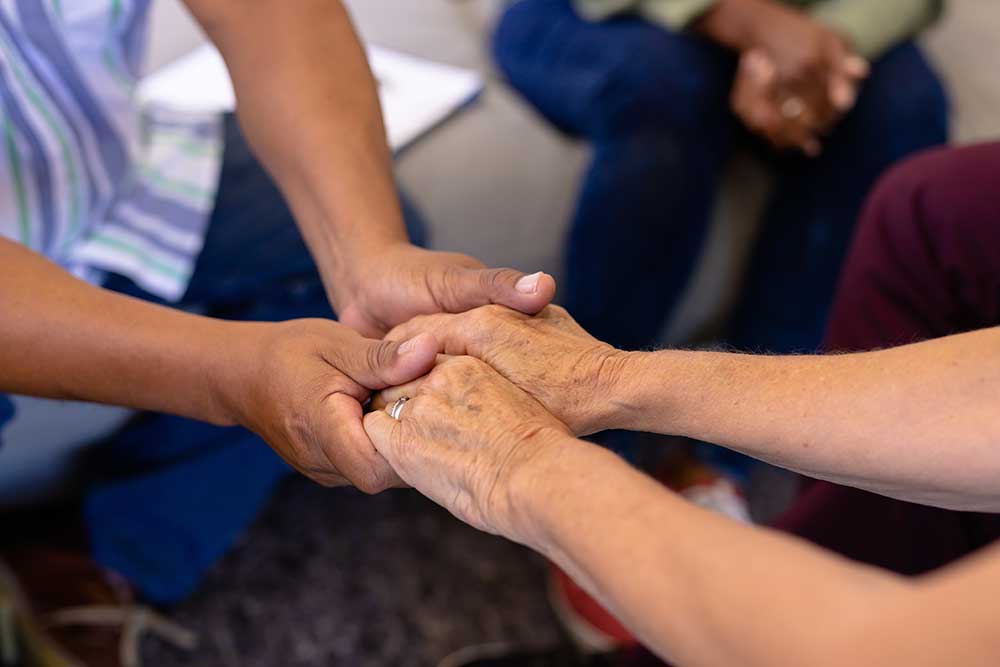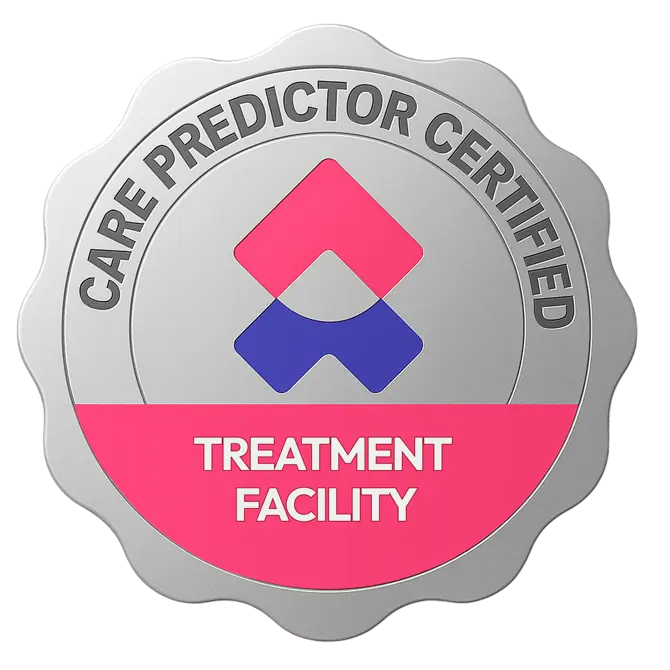Anxiety can manifest and impact each life differently, which is why at Alter, we work to deeply understand and craft a tailored treatment plan for each and every client.
Some people start struggling with anxiety after a major life stressor or change, like a new job, while others have dealt with an anxiety disorder for as long as they can remember. When anxiety becomes debilitating, inpatient anxiety treatment at Alter can help change everything.

Living with severe anxiety, panic attacks, and other symptoms can make it hard to function. Our treatment options at Alter are tailored to each client to help with their unique needs.
Each case of anxiety is unique, so treatment lengths can vary. Most clients start in residential treatment (RTC), then move down each level of care. After residential, clients can move to partial hospitalization (PHP), then to intensive outpatient (IOP) when they’re ready. We provide dedicated consultation services to help you find the best program for your needs.

Regaining control when living with an anxiety disorder can feel daunting, but the goal of treatment at Alter is to help clients overcome intense fear and live a healthy, normal life.
We focus on treating underlying causes and symptoms of anxiety for lasting transformation. Clients will have the chance to overcome their biggest fears through monitored exposure therapy, and will be equipped with the medications and life skills they need in order to thrive.
Call Now for Program Availability
Contact our admissions team to learn about our programs and to check availability at our facilities, or submit your insurance to verify coverage.
” Alter is quite possibly the best thing I’ve ever done for myself. The house is immaculate, but the staff is what makes this recovery option so healing.
The scenic view of the ocean meeting the mountains was just breathtaking. Every morning was a gift.
Most noticeably, when I came to Alter, I was crippled by debilitating anxiety and panic. Each morning I’d wake up and frantically check in with my craziness. Now, I just wake up.
I highly recommend Alter! “
– Tannis C.
Living with someone who struggles with anxiety affects the entire family. Communication can become strained as worries dominate conversations, leading to isolation and frustration. As family members work to accommodate the anxious person’s needs, they can become burnt out and socially isolated if their family is anxious to engage with others. Living with someone with anxiety requires patience and understanding, and Alter is here to support the entire family along the treatment journey.


We recognize the pivotal role of family dynamics in influencing treatment outcomes, especially when it comes to anxiety. That’s why we focus on fostering open communication with our clients’ families. With the client’s consent, we give updates on symptom progress and medication details to authorized family members. We also work to support the family members as much as possible, offering education and family therapy when it’s appropriate.
People with Generalized Anxiety Disorder (GAD) cannot stop themselves from worrying constantly about common situations. They can worry about things like work, health, family, and money, but there is no limit; they can literally worry about anything! While most people feel anxious at times, people with GAD feel overwhelmed by their anxiety. Living with constant worry becomes a distraction to the point where living a normal life is impossible because of overwhelming anxious thoughts and feelings.
Anxiety disorders are the most common of mental disorders and affect nearly 30% of adults at some point in their lives.
Learn more about Anxiety Disorders
Women are more likely than men to experience anxiety disorders. These are the different anxiety disorders we treat:
There’s no single cause of anxiety. Here are some factors that impact the development of an anxiety disorder:
Look for signs like constant worrying, avoidance behaviors, physical symptoms (like rapid heartbeat or sweating), and changes in sleep or appetite patterns.
Stay calm, reassure them they are safe, encourage slow breathing, and help them focus on the present moment. Guide them through inhales and exhales to facilitate focusing on their breathing. Offer to help them find professional support if needed.
Encourage seeking professional help if anxiety significantly interferes with daily life, causes distress, or persists despite attempts to cope. You can call us for a free consultation any time.
Offer empathetic support while gently encouraging healthy coping strategies and boundaries. Avoid accommodating anxious behaviors that reinforce avoidance.
Recovery is possible with proper treatment, support, and coping strategies. It may take time, but many people with anxiety improve significantly with professional help and live happy, fulfilling lives.
While some people may see improvements with self-help techniques, severe or persistent anxiety often requires professional intervention for effective management and long-term recovery.
Call Now for Program Availability
Contact our admissions team to learn about our programs and to check availability at our facilities, or submit your insurance to verify coverage.
We accept most major insurance providers including the ones displayed here.










We accept most major insurance providers including the ones displayed here.
Submit your insurance to confirm coverage.




















Our facilities have been awarded prestigious recognition and certifications by adhering to rigorous guidelines and exceeding quality standards with consistent, safe & effective healthcare services.



Our mission is to advance the future of mental health care through innovative, evidence-based treatments, delivering excellence, fostering human connection with unwavering compassion that empowers every individual to thrive.
34270 Pacific Coast Hwy
3rd Floor
Dana Point, CA 92629
Questions? Call now to speak confidentially with an admissions counselor.